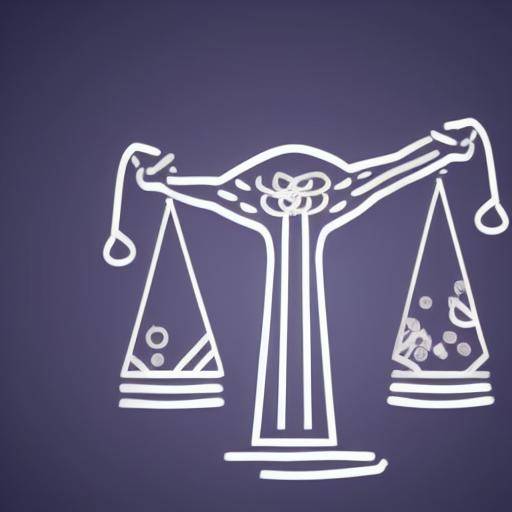
The balance between work and personal life is a challenge many face in contemporary society. In the midst of professional and personal demands, it is essential to develop a culture of growth that allows harmonious integration of these two fundamental aspects of our lives. In this article, we will thoroughly explore what is the growth mentality, how it can contribute to work-life balance and personal development, offering practical advice and comprehensive analysis backed by experts.
Introduction
In the accelerated and competitive era, it is common to be caught in the voragine of work, leaving aside key aspects of personal life such as health, family time or personal development. However, developing a growth mentality can be the key to restoring balance.
History and Context
Origins of the Mentality of Growth
The growth mentality, popularized by psychologist Carol Dweck, is based on the belief that skills and qualities can be developed through effort, dedication and continuous learning. Its roots are found in the psychology of achievement, challenging the notion that skills are innate and establishing the importance of the process of learning and evolution.
Evolution and Relevance
Over the decades, the growth mentality has gained ground in different fields, from education to the business world. Its relevance has been driven by its impact on motivation, resilience and achieving goals both individually and collectively.
Analysis in Deep
Benefits and Challenges
The adoption of a growth mentality not only drives personal overcoming, but can also be fundamental to the balance between work and personal life. It allows to face challenges with a fluid mentality, fostering adaptability and the development of strategies to effectively manage job and personal responsibilities. On the other hand, paradigm change can pose initial resistance, as it involves abandoning the static perception of skills and confronting the uncertainty of the growth process.
Current Outlook and Trends
The current working environment, marked by flexibility and digital transformation, has highlighted the importance of cultivating a growing mentality. The capacity for adaptation and continuous learning is built as a determining factor for exceling in a constantly changing world of work. In addition, the growing interest in comprehensive welfare has highlighted the importance of balancing labour demands with personal care.
Comprehensive review
Practices and Case Studies
Practical examples of how individuals and organizations have successfully integrated the growth mentality to improve work-life balance reveal concrete strategies to optimize labour productivity without sacrificing personal well-being. These cases show that the approach to comprehensive development can result in greater labour and vital satisfaction.
Conclusions and FAQs
Conclusions
Developing a culture of growth is a fundamental understanding not only for personal development, but also for achieving an effective balance between the labour and personal spheres. By adopting a growing mentality, continuing progress is fostered, resilience is promoted and an inclusive approach is promoted to maximize the use of every facet of life.
Frequently asked questions
How can I begin to develop a growing mentality in my daily life?
Developing a growing mentality begins by recognizing that success is intrinsically linked to learning and continuous effort. Establishing challenging goals, maintaining a positive attitude towards challenges and constantly seeking new learning opportunities are key actions to foster this mentality.
How can the growth mentality help balance work and personal life?
By adopting a growth mentality, flexibility and adaptive capacity are promoted, allowing more effective management of labour and personal demands. By focusing on comprehensive development, the ability to set priorities and make decisions that foster a more harmonious balance is enhanced.
What is the role of the growth mentality in personal development?
The growth mentality has a significant impact on personal development by fostering a proactive attitude towards learning and overcoming. By embracing the notion that skills and capacities can be developed, the door opens to continuous personal growth, fostering self-confidence and resilience.
How can I apply the growth mentality in my working environment?
Integrating the mentality of growth in the workplace means fostering an environment that values learning and continuous improvement. Establish challenging goals, provide training and development opportunities, and promote a culture that supports experimentation and learning are key steps to foster this mentality at work.
What are the most common challenges in adopting a culture of growth?
The resistance to change and the tendency to maintain limiting beliefs are common challenges in adopting a culture of growth. Overcoming the established mentality and confronting the discomfort associated with the challenge and change are aspects that require attention and effort.
What are some effective strategies to promote the growth mentality in a work team?
Increasing experimentation, recognizing effort and growth, fostering knowledge-sharing and providing individual development opportunities are effective strategies for cultivating a growth culture in a work team.
In understanding the importance of the mentality of growth in labour-life balance and personal development, a path to a more comprehensive and satisfying approach is opened in both the labour and personal spheres. Adopting this mentality not only drives individual overcoming, but also strengthens the ability to face the challenges with resilience and adaptability. By integrating these concepts, a holistic vision is promoted that enriches every facet of life.
Keep learning, growing and balancing!






















































